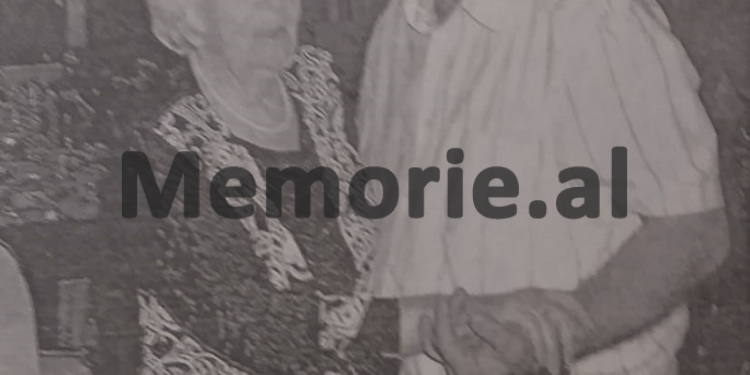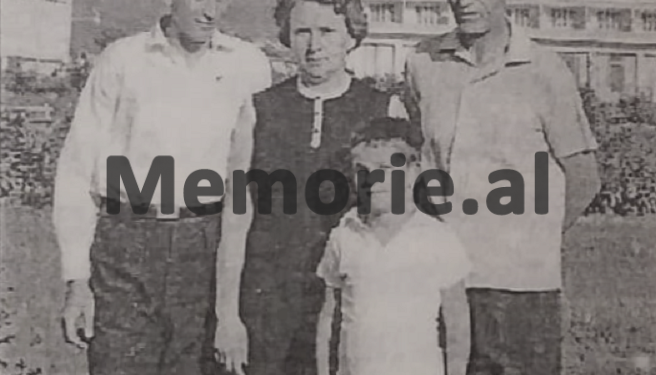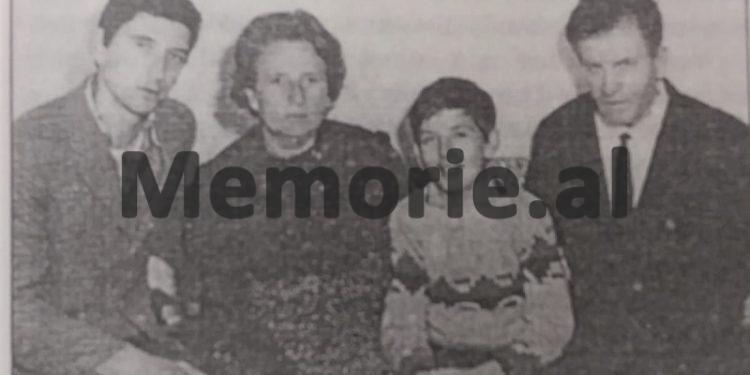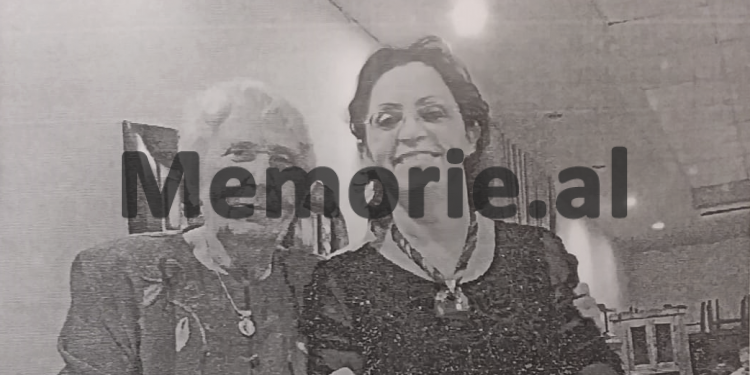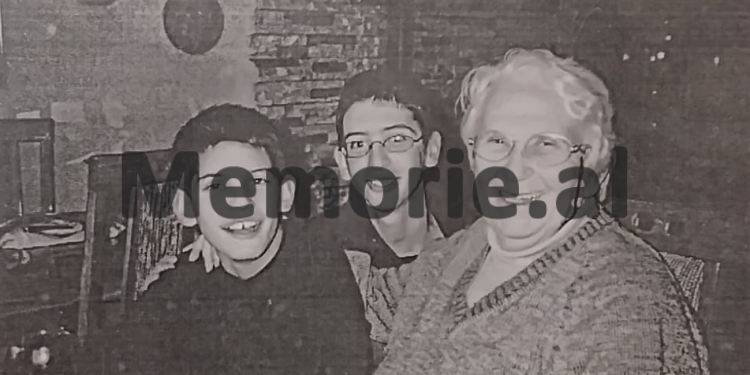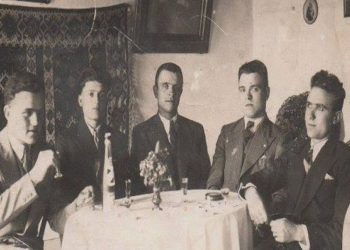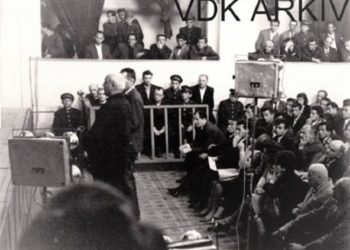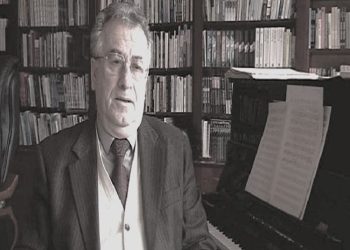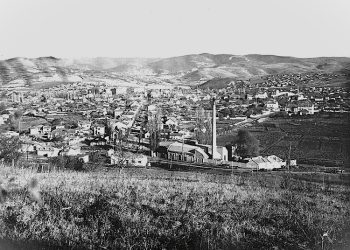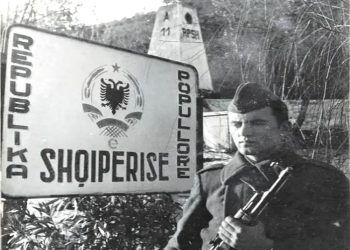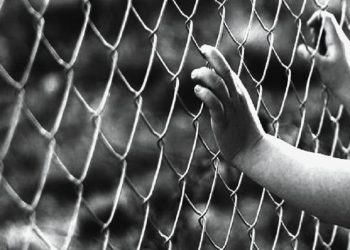Taisa Batkina Pisha
Part twenty-four
Memorie.al/publishes the unknown story of the Russian Taisa Batkina (Pine), originally from Tula, Russia, the third child of a very poor rural family, who was left an orphan at a very young age, after her father lost her life while working in one of the coal galleries on the outskirts of Tula, where he worked as a miner (shortly after escaping arrest, accused of “supporting the enemies of the people”) and she grew up with difficulty great economic, as their city continued to be under the bombardment of German forces, which had reached as far as near Kursk. Taisa graduated from the Faculty of Chemistry, near the ‘Lomonosov’ University of Moscow, where she met and married the Albanian student, Gaqo Pisha, originally from the city of Korça, who at that time was studying at the Faculty of Philosophy in Moscow and both together in 1957, they returned to Albania, together with their newborn son, Sasha, and began life in the city of Tirana, where Taisa was appointed as a professor of Chemistry at the State University of Tirana, while Gaqo, in the chair of Marxism- where they worked until 1976, when the State Security arrested Taisa Batkina on fabricated charges, accusing her of being a “Soviet KGB agent” and sentencing her to 16 years in political prison, which she suffered in the “Women’s Prison” in the city “Stalin”, from where she was released in 1986, while her husband, Gaqo Pisha, had died in 1983, from a serious illness. The tragic story of Taisa Batkina (Pine), in the inhuman camps and prisons of Enver Hoxha’s communist regime, where she spent a decade of her life, along with many compatriots from the former Soviet Union, or other Eastern European countries, comes through her memories, published in a book entitled “We hoped and survived”, memories which, her son, Aleksandër Pisha, kindly offered her for publication, in Memorie.al
We hoped and survived
I dedicate it to the bright memory of my husband, GAQO PISHA
This is a memoir. In it I want to tell about my life and that of my friends, Soviet women, who tried prison for several years just because they got the courage and got married and linked their fate with that of Albanian students. The prison was part of the great GULAG in the small Balkan country, Albania, where for many years the bloody communist regime of Enver Hoxha ruled, who was a loyal student of Stalin and a follower of his cause.
Through this book I would like everyone to learn about the inhuman trials we experienced and the horrible years we spent in Albanian prisons, just because… we fell in love! And let no one ever forgets what totalitarianism, despotism is and what the consequences of this system are.
Continued from the previous issue
Bardha Bici
I wrote above about the highlanders from the North of Albania, how they differed in maintaining unparalleled pride. Among them stood out a woman with slightly gray hair and characteristic profile, nose with back and protruding chin. At work, at camp, or in the corps, she behaved in a way that inadvertently aroused respect, and I adored her. From the beginning, it seemed to me that she was the ‘kapoja’, or, more precisely, the epicenter of the mountain villagers. They honored her in a special way, consulted with her, listened to her opinion. I was told that she was the daughter of Captain John Markajon. This name, the name of Bardha Bic’s father, had no special meaning for me. We came to Albania in the ’50s and did not know anything about the events before or during World War II. From what was written, we learned only the official version of events, we heard the names of those who called the communist leaders heroes. And, of course, we did not know the names of the anti-heroes. Much later I learned in the camp that Bardha’s father was a prince, the first of Mirdita, the district with Catholic inhabitants in Northern Albania. Other districts with Catholic populations once belonged to the same district, such as: Puka, Lezha and some villages of Shkodra (as for knowledge; before the war in Albania, feudal relations were preserved). It was said that John Markagjoni was a direct sucker of Skanderbeg. He enjoyed considerable power and authority in his principality and was undoubtedly a sworn enemy of the partisan movement, organized by the Yugoslav communists.
I mentioned the relations of the Albanian nationalists with the partisans. Now I want to say a few words about the attitude of the nationalists towards the Italians and the Germans. It is known from history that during the creation of the Albanian state and the declaration of independence, Kosovo and other areas inhabited by Albanians, where the strongest movement for the declaration of independence had erupted, were unjustly given to Yugoslavia. When World War II broke out, the Italians and then the Germans, who invaded the Balkans, united all Albanian-inhabited territories and created Greater Albania, realizing the centuries-old hopes of Albanians for unification. The partisan movement, led by the Albanian Communist Party, which was founded with the support of the Yugoslav communists, was for the return of these territories to the neighboring state, Yugoslavia. It is understandable that the army of Albanian nationalists fought against the partisans, helped the Italians and the Germans, with the hope that it would preserve a greater Albania even after the war. This is a very confusing problem and I mentioned it just to make it easier to write about Bardha Bic’s family. Bardhë’s father, Captain Gjon Markajoni, was one of the commanders of the nationalist army. His sons also fought with him. The Germans, who invaded Albania after the capitulation of Italy, were retreating for fear of falling into the trap. In the North of Yugoslavia, the Red Army invaded, in the South, from Greece, the British. Along with the Germans, the nationalists also withdrew. White’s father and her three brothers crossed the border. The family could not be evicted; Kapidan’s wife, son, two grown daughters, the paralyzed wife of the eldest son killed in the war, with a baby at her breast, were sent to the camp set up especially for the “enemies of the people”! Everything according to the experience of the Soviet Union, according to the model of “big brother”!
Thus began the protracted epic of Bardha and her close people: camps, internments, prisons. Some of them died in the camps, others left after living for… 40 years! For Bardha, the deportation lasted more than 20 years and ended when Bardha got married and was no longer considered an exile. Her husband was also a person with a “bad” biography! (Someone with a good biography could not marry White). He had spent many years in prisons and internments. He was among the intellectuals against whom the government was fighting, he had studied abroad, he knew several foreign languages. To survive, he learned the trade of carpenter. Bardha and her husband settled in a small town and lived quietly for several years. The whole period of the communist regime in Albania can be compared to a spring. The spring was sometimes tightened and the persecution intensified, sometimes it was released and people felt a little relieved. In 1974 the system of persecution was tightened. Many people got stuck in it. In 1975, Bardha’s husband was arrested. The wise, far-sighted and experienced woman realized that this arrest had to do with her. And indeed, six months later they arrested Bardha as well. During the investigation, Bardha remained independent, did not accept anything, and did not sign anything. They told her husband’s depositions for some of their conversations. “You barely got the deposits”! She told investigators. They played with him for a long time, humiliated him, tried to get the deposits they wanted, tarnished the memory of his father. “See for yourself, what profile you have”! – Investigators laughed. – “Like Skanderbeg!” – Bardha answered proudly. Anyway, they fabricated the trial, gave him 8 years and sent him to camp. Bardha said: “They had me as a needle in the throat… the daughter of Markajon… I seemed to unite the whole tribe”.
When Bardha was arrested, the war had been over for 30 years, the Captain himself had died abroad, and the popular power was still afraid of its people, exiled them, imprisoned them, did not let them live in peace. Bardha was a very hardworking woman, with golden hands, she did everything brilliantly: she created, worked in the field, sewed, knitted, she knew everything. In prison he behaved in such a way that one day, I inadvertently called her a “lioness “. She replied: “If you only knew what kind of parents I had, what kind of family”! (In Albanian, the word “lioness” means many things: nobility, pride, independence, high sense of human dignity). White understood situations very well, people. He never believed in our guilt, in the guilt of most of the women prisoners, he understood the essence of the events. Bardha was released from prison with the 1982 amnesty and immediately deported, where local villagers secretly helped him. A year later, her husband was released from prison. Prisons, internments had ruined his health; he became seriously ill and died. After the fall of the communist regime, Bardha, like all other political prisoners, was rehabilitated, compensated for material losses, and property returned.
Mother Flower
Near the door of our room, on the first floor of the iron bed, sat a small old woman with a long nose. She almost always remained silent, sometimes sewing something, embroidering, occasionally looking at a small picture and crying. They called her Lule, a villager from Mirdita. The flower resembled a tiny chicken with raised feathers. No one ever came to the meeting, no one from outside helped him. Sometimes she earned something by sewing or embroidering, for which she was a true master, doing very beautiful things. In prison work was paid very little and… in nature: a glass of sugar or vegetable oil…! The mountain villagers supported, helped and protected him. She desperately needed protection, any bully could harass her, insult her, and she herself did not respond. Her story was simple. The man had been a nationalist during the war, under the command of Captain John Markagjon. After the victory of the communists, he was forced to live abroad. In the first years after the war, when the border was still not properly guarded, men could sneak through the mountain trails and come to see their men. One of them was Lule’s husband.
One day he came to meet his family, with some girls and a little boy. Years passed. Lule’s son grew up, served in the military, started working in a cooperative, and got engaged. Lulja was happy to have reached this day. At the wedding, Lula’s son, who had drunk a little too much, during a conversation inadvertently revealed that a few years ago his father had come to see them. And, of course, someone immediately reported it. By now, espionage, in that state of general fear, had become the norm. A little later, Lula’s son was arrested, then Lula himself. The indictment stated: “Hiding and aiding the saboteurs.” The boy was sentenced to 17 years in prison, Lulen to 10. The young bride gave birth to the child and returned with her to her father’s house. Behold, that was the story. Simple, but what human bitterness! That is why Lulja cried when she saw the picture of her son, who worked in terrible conditions in the chrome mines, together with thousands of other prisoners. Lulja was released with the amnesty of 1982. Lulja’s daughters are not affected. They married and lived away from their paternal home.
Nadirja and Minia (“The Case of Baldushk Cows”)
One day the door of my cell opened and the guard spoke angrily through his teeth: “Gather your belongings”! I got the blanket and gourd with water. “Even the mattress! Come after me”! I also took my mattress and my belongings from the nightstand to the hallway and entered another cell. The door slammed shut. I rolled my eyes. In the corner of the cell I saw a young girl, 17-18 years old. I wanted to approach him, hug him, and calm him down. She got scared, pulled away, avoided. I had been alone in the cell for a long time, it was winter, I was very cold. So I was happy to go to someone with whom I could exchange words and warm up. But she did not want to approach me. Only after a few days, as if “melted” somehow. Later we became friends, we had very good relations throughout the years, and we spent together in the camp. In the cell she told me that before they took me to her cell, the investigator had called her and told her that they would put a Soviet woman in the cell, she is an enemy, be careful…! So when he saw me, as I was, tall, gray, hungry, he was very frightened. Later he told me about himself, he told me the whole story, in pieces, with difficulties, on vacation, he was very afraid to tell. She was terribly exhausted from prison, investigation, threats and beatings. Hand in hand I formed the complete and clear picture of its history. For it to be better understood, I have to touch again on the political situation of that time. I have written extensively about the persecutions of the mid-1970s, when Enver Hoxha and Mehmet Shehu annihilated, arrested and shot almost all ministers and members of the Politburo. Among them was the Minister of Defense, Beqir Balluku. Beqiri was from Tirana, from a village in Tirana.
Given the fact that in Albania, localism is very widespread, it was natural to think that the tyrants would revolt by the arrest and shooting of their fellow villager or fellow citizen and would express this revolt in some way. But in the conditions of Albania, such a conjecture was completely meaningless. During the years of the communist regime, the people living in poverty, in lies, in the midst of constant persecution, had neither the strength, nor the opportunity, nor even the desire point for organized resistance. However, the authorities wanted to prove otherwise. Such a process was needed, to further strengthen the fear, anxiety, insecurity, a cause had to be found, a process had to be provoked and hatched. And the case for such a process arose. In the village of Baldushk, not far from Tirana, there was a mass death of cattle. They were purebred cows, bought in the Netherlands. The cows died not all at once, but within a few months, in small groups. A special commission was set up, expertise, analysis was done, and it turned out that: the cause of death was rotten food. Measures were taken; the vet was taken to court. A month after these events, Prime Minister Mehmet Shehu himself suddenly went to the village and the issue immediately took on a completely different color. The events were called diversion and a fully fabricated version of the “poisoning” of cows was developed. They put the village nurse in charge of the case, he had a “bad biography”, and one of the relatives was sentenced to prison, in a word, a suitable candidate. Minia, a nurse, also worked with him in nursing. They made him his collaborator. This seemed to seem more plausible. Minia had a sister, Nadiren, a milkmaid. Minia, ostensibly persuades her sister, to throw poison into the water tank from which the cows drank. The chain was ready, even the plot!
Arrests for “poisoning” Baldushk cows!
The first analyzes were annulled, “new analyzes” were made, which “discovered poison in water”. About 8 people were arrested for this case. The poor girls, one 18, the other 20 years old, were put in prison, separated from the house, from relatives. Mines fiancé broke off the engagement. For almost a year they were held in pre-trial detention, beaten, tortured. They hit the wall with their heads, screaming, as it was heard throughout the prison: “Did you hear, Enver”! At that time the girls still believed that the good uncle Enver would come and save them from the evil prison guards. In the camp this belief was quickly dispelled. As a child, Minya suffered from a heart attack and spent most of her time in the hospital, not in a cell. The sisters did not accept anything, did not want to know about this fabricated story, did not sign. Investigators then hatched a provocation. Nadires showed the depositions allegedly signed by Minia and threatened that, if he did not sign, Minen would be shot. Nadirja signed them all. Then the trial took place. Nadirja was sentenced to 14 years, while Minia 15. Some members of “their group” were shot. I was put in Nadire’s cell after their trial was over and, as I later found out, Nadire was in a very serious condition, they were afraid to leave him alone in the cell. Meanwhile the girls took them as witnesses in another trial. It was revealed during the main trial that an important link was missing in the case. It was not said where the conspirators got the poison. They corrected the mistake quickly, arrested the storekeeper and tried him separately, because he had given the poison to the conspirators.
With Minen and Nadiern, 9 years in camp
I spent 9 years in the camp with both girls. They were good girls, smart, honest, hardworking. Very unfortunate. No one came to them to see them, no one helped them. Only once in prison, after the trial was over, were they allowed a meeting with his father. This happened when we were staying together in the cell. One morning Nadirja woke up with a smiling face: “Wow, what a dream I had…! If they gave me two flowers, one red, one pink paint something good will happens to me! ” And, surprisingly, a few hours later the cell door opened and Nadiren was taken.”I had a meeting with my father and Mina, we stayed together for an hour!” Then he started crying. He told me how bad was the father, who had told the daughters how they were persecuted in the village; they had told him that if he helped his daughters, they would deport him. Mina and Nadirja worked in the field. For Nadiren this was an easy job, because she was taught as a child. She loved nature, knew many things about it, and often told us with pleasure about her garden, about the liveliness that reigned in their village. Minia sometimes worked in the field, was often hospitalized in the prison, sometimes, rarely, came to work as a nurse, and accompanied the brigades in the field…! Exactly sometimes, rarely, because Mina was an “enemy of the people” and the “enemies” were not allowed to work in the administration, in the kitchen or in the nursing home. “Friends” worked there, socially close, ordinary convicts. The sisters did not benefit from the amnesty of 1982. They were convicted under the article “diversion”, and this article was not included in that amnesty. This greatly affected both girls, especially Minia, the gentle and very sensitive girl. After the amnesty we stayed a while and Mina was assigned to work as a camp nurse.
The enigmatic death of Mines in her room!
Life in prison went on as usual. It was also common that (the “diplomatic corps”) regularly wrote to the highest instances about our innocence and asked to be released. We wrote such letters right after the amnesty, but, although we were promised that they would review our issues, we received the standard negative answer. This response killed Min a lot. Minia slept in the nursing home, not in the joint corps. One early morning, before waking up, I noticed that something strange was happening in the room. All the women looked shocked, whispered in each other’s ears, hiding something. Then they told me in secret: “At night, from a heart attack, Minia died.” Everyone was trying to hide this from Nadirja, she had to be prepared in some way. But Nadirja smelled the evil and started shouting: “What are you hiding from me, where is Minia”?! Then came her friends, the villagers from the other corps. Young, good, strong (Were condemned for abuse and deficit). They sat down with Nadir in the middle and told him everything. They did not tell him that Minia was not feeling well at night and that no one could help her, nor was there a doctor in the village. The camps tried to set them up as far away from the inhabited centers as possible. The doctor, who came in the morning, ascertained the death. Diagnosis: “Heart attack”. They put the mine on, put it in the coffin in the infirmary, we all went to say hello to it. We all loved it; she did not raise her voice once, she was always kind, she took great care of her sister. The next day, Mina had to be buried, the burial took place in the village cemetery, and a number inin came to the grave! The whole camp begged the command not to fire them, to let them say goodbye to Mina for the last time. /Memorie.al
The next issue follows




